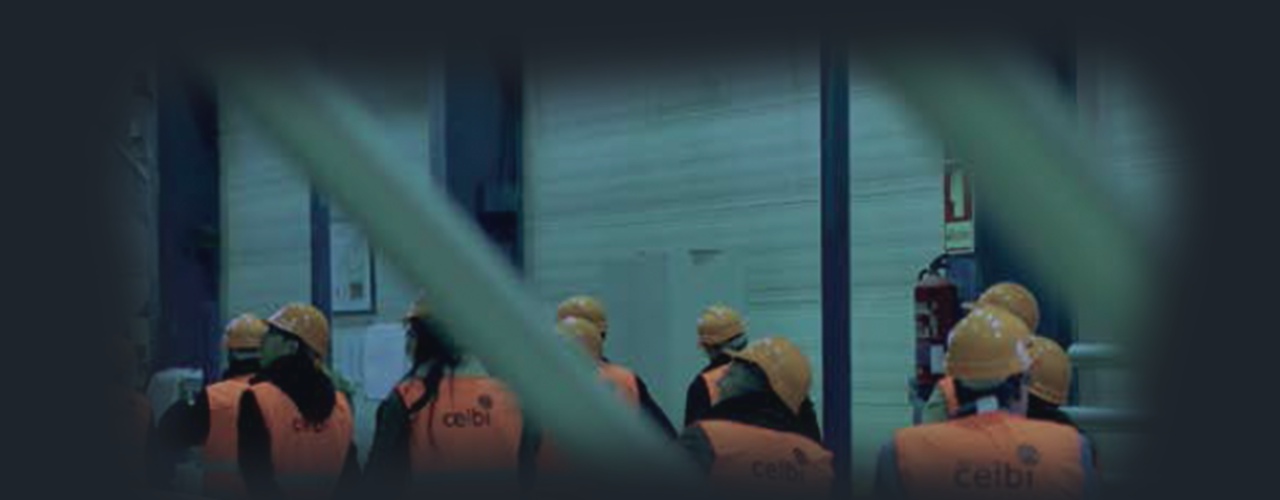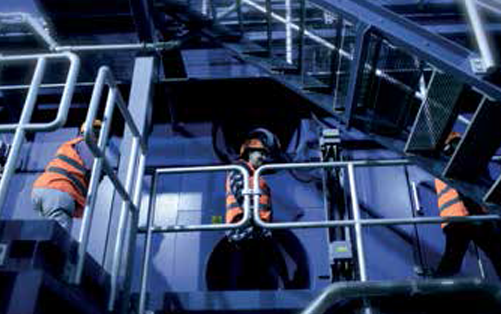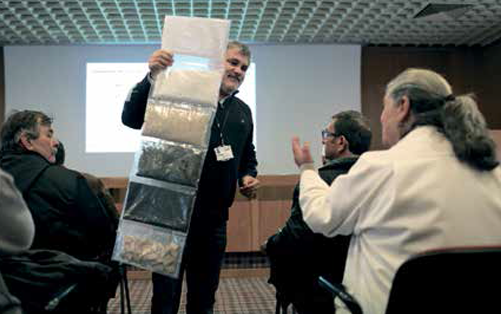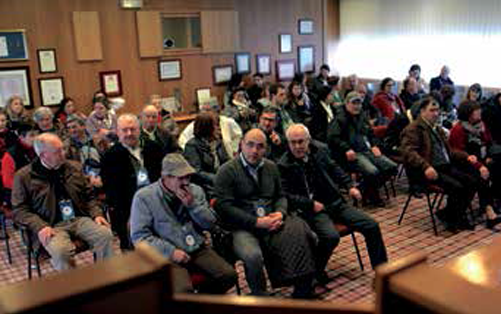
After the success of the initiatives that, in 2015, the year of the fiftieth anniversary, opened the doors of Celbi to former employees and suppliers, in a program which also included some engagement activities with the local community, such as the cleaning of the Leirosa beach, the year 2016 arrived full of new opportunities for a company that is committed to transparency, proximity and social responsibility. The first Open Day to the local community took place on 13th February and it was a success to be repeated.
About sixty people accepted the challenge and signed up in advance for a morning in Celbi. Natives or inhabitants of Leirosa and surrounding communities arrived early and, with a cold and rainy day, took advantage of the welcoming breakfast to break the ice, exchange the first greetings and warm-up the stomach. With a good mood ensured, the participants were then invited to watch the institutional film of Celbi, a video that shows, briefly, not only the history of the institution that changed Figueira da Foz industrial panorama since the 60's, in the last century, but also the values ??that, over half a century, have guided this route, from the quality of raw materials, processes, employees and the final product, to the economic, financial and environmental sustainability.
The Engineer Carlos Van Zeller, administrator of Celbi, had, then, the chance to talk about the company where he has worked for 26 years. From its Swedish origin, the current Celbi saved, among other priorities, the Nordic tradition of respect for the environment and enhancement of social responsibility, said the administrator. Innovative in several areas, Celbi continues to call the shots on numerous issues, including the fight against pollutant emissions and the defence of energy efficiency, yet managing to be "the second largest factory of paper pulp production in Europe", producing 700 thousand of about 55 million tons that the market currently consumes. Celbi is still "the most modern European factory of its sector ', having made ??the largest investments in modernization and environmental protection in recent years, to the value of around 500 million euros, stressed Carlos Van Zeller." There is not, in any place worldwide, the latest technology than that used by Celbi," he reinforced.
Aware of having, in front of him, an audience mostly made ??up of inhabitants of Leirosa, the administrator said that, concerning the possible environmental impacts, Celbi remains strongly committed to understand their potential causes and that investigations and studies carried out by institutions hired by the two factories are in progress."Celbi has a very close relationship with the Portuguese Environment Agency (APA), which does frequent inspections, and to which ones we add our own self-control actions", he assured." We are often invited by various organizations for presentations that deal with our environmental policies and practices, which makes us proud," he added. "But we do not forget that this mill, which creates wealth in the county and directly employs more than 235 people, generating as many indirect jobs and that it generates wealth for the country, is still a factory. And factories produce noises, odours and other unwanted consequences. Industrial activity has an impact, we confess, but it's an impact we try to reduce actively and, in what remains, we try to mitigate such unwanted consequences, "he explained." We have heard people, with the support of the president of the parish council, in order to try to understand the issues that concern them. We have invested more than 2 million euros only in environmental protection, we have covered silos for woodchips, for all the equipment, and we will continue to invest and research." I ask the community: understand that we are doing everything that is possible to minimize the impact of our activity. We comply with the law, going beyond what the law requires and we are always open to listen and improve, "he concluded.
With the issue clarified, Engineer João Rebola, the Production Department Manager, displayed, with audio-visual resources, the manufacturing process of the paper pulp. Meanwhile, samples of the material circulating in Celbi, were handed through the audience, from the woodchips to bleached paper pulp, ready to be sent to clients, other mills, 95% of which are European, which then transform it, for example, in napkins, toilet paper and other goods we use daily. Ana Patricia Fernandes, research scholarship holder and PhD student at the University of Aveiro, only knew Celbi from the outside. Now, after the visit, she considers that "it is important, especially for citizens who live near, to know what happens and what is done in Celbi, especially because it is a mill with impact on the local economy."


